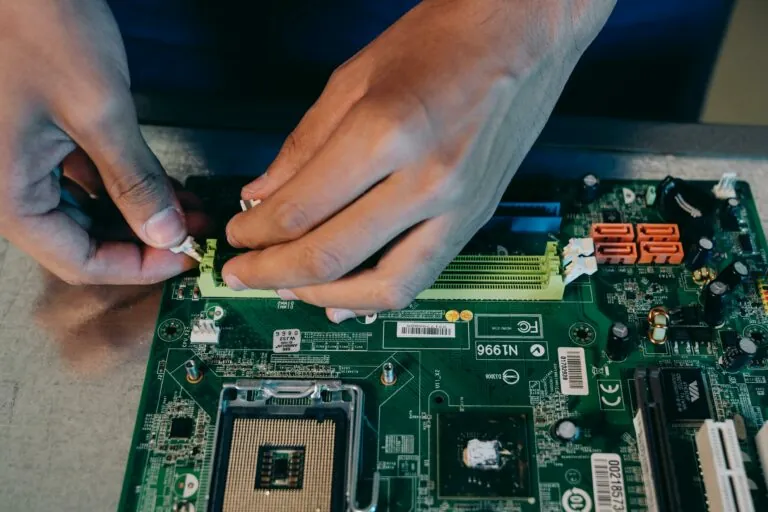Parenting can feel like a never-ending circus act, juggling tantrums, homework, and the occasional spontaneous dance party. Amidst the chaos, self-discipline often takes a backseat, leaving many parents feeling like they’ve lost control. But what if they could regain that control with a sprinkle of humor and a dash of determination?
Self-discipline isn’t just a fancy term for “being strict.” It’s about creating a balanced environment where kids thrive and parents don’t lose their minds. By mastering self-discipline, parents can set boundaries, model positive behaviors, and maybe even sneak in a moment of peace (or a well-deserved snack break). So let’s dive into the art of self-discipline and discover how it can transform the parenting journey into a more enjoyable ride.
Table of Contents
ToggleUnderstanding Self-Discipline for Parents
Self-discipline plays an essential role in effective parenting. It empowers parents to manage their responses and maintain a structured environment.
The Importance of Self-Discipline
Self-discipline helps parents to establish clear boundaries. Setting limits allows children to understand expectations. Consistency in behavior strengthens the parent-child relationship. Parents exhibiting self-control model positive behaviors. This approach encourages children to develop similar traits. Research shows that disciplined parents foster greater independence in their children. Parents practicing self-discipline minimize stress by avoiding reactive decisions.
Benefits for Family Dynamics
Effective self-discipline enhances family dynamics significantly. Improved communication occurs when parents respond calmly to situations. Children often feel more secure in a stable environment. A disciplined approach to parenting reduces conflicts around daily routines, such as bedtime and chores. Parents who exercise self-discipline often witness increased respect from their children. Strong family bonds emerge as trust builds through consistent interactions. Overall, a commitment to self-discipline fosters a harmonious family atmosphere, encouraging everyone to thrive.
Strategies for Developing Self-Discipline

Developing self-discipline involves practical strategies that help parents create a balanced and effective home environment. Following structured approaches can foster both personal growth and a nurturing atmosphere.
Setting Clear Goals
Establishing specific goals for self-discipline enhances accountability. Goals should be realistic and measurable, allowing parents to track their progress effectively. For instance, aiming to limit screen time to two hours daily can help create healthier habits. Incorporating short-term and long-term goals provides clarity and direction. Parents benefit from writing down these goals to keep them visible, encouraging ongoing commitment. Reviewing goals regularly allows room for adjustments based on changing circumstances, thus maintaining focus and motivation. By clarifying intentions, parents model goal-setting behavior for their children, promoting a culture of discipline.
Creating a Routine
Designing a structured daily routine boosts self-discipline. Consistent schedules help in managing time effectively, ensuring that both essential tasks and quality family time receive attention. Start each day with specific priorities, which can include dedicated time for work and family interactions. Block scheduling may alleviate decision fatigue, making it easier to stick to planned activities. Including regular breaks aids in maintaining energy levels throughout the day. Flexibility within routines is vital; adapting plans when necessary fosters resilience. Crafting a routine also teaches children the importance of planning and responsibility, reinforcing valuable life skills.
Overcoming Challenges in Self-Discipline
Parents often encounter various challenges that hinder self-discipline. Understanding these obstacles can lead to effective solutions.
Common Obstacles Parents Face
Time constraints create significant stress for parents managing daily activities. Distractions from technology frequently disrupt focus during important tasks. Emotional fatigue can make sticking to routines difficult, leading to impulsive decisions. Additional pressures from work and family commitments exacerbate feelings of being overwhelmed. Inconsistent role models can also undermine efforts since children learn through observation. Identifying these common barriers helps parents develop strategies for maintaining self-discipline.
Tips for Staying Motivated
Setting small, achievable goals fosters motivation and instills a sense of accomplishment. Reflecting on personal progress often boosts confidence and encourages continued effort. Finding a partner to support accountability can enhance commitment to routines. Creating a reward system for meeting milestones offers incentives for maintaining focus. Engaging in positive self-talk can reinforce resilience and determination when faced with setbacks. Reassessing goals regularly ensures they remain relevant and aligned with evolving family needs.
The Role of Support Systems
Support systems play a crucial role in fostering self-discipline among parents. Engaging with other parents and seeking professional guidance can significantly enhance parenting skills.
Engaging with Other Parents
Connecting with other parents provides a sense of community and understanding. Sharing experiences leads to discovering new strategies for self-discipline. Forming local parenting groups creates opportunities for supportive relationships. These gatherings often facilitate the exchange of practical tips, such as managing daily routines or handling behavioral challenges. Participating in discussions not only enhances accountability but offers emotional support as well. Learning from others’ successes and setbacks contributes valuable insights, allowing parents to refine their approaches.
Seeking Professional Guidance
Consulting professionals can also be beneficial for parents striving for self-discipline. Therapists and parenting coaches provide tailored advice based on individual circumstances. Accessing workshops and seminars expands knowledge of effective parenting techniques. Engaging in one-on-one sessions allows parents to address specific concerns, such as managing stress or improving communication with children. Expert guidance helps refine strategies and keeps parents focused on their goals. Gaining an outside perspective can enhance self-awareness, ultimately leading to more disciplined parenting practices.
Self-discipline is a vital skill for parents navigating the complexities of family life. By establishing boundaries and maintaining consistency, parents can create a nurturing environment that benefits everyone. The journey toward mastering self-discipline is not without its challenges, but with the right strategies and support systems in place, parents can overcome obstacles and foster stronger family bonds.
Embracing self-discipline allows parents to model positive behaviors and instill important life skills in their children. As they commit to their goals and adapt to changing circumstances, they pave the way for a more harmonious family dynamic. Ultimately, prioritizing self-discipline not only enhances parenting experiences but also cultivates a thriving atmosphere for children to grow and flourish.



